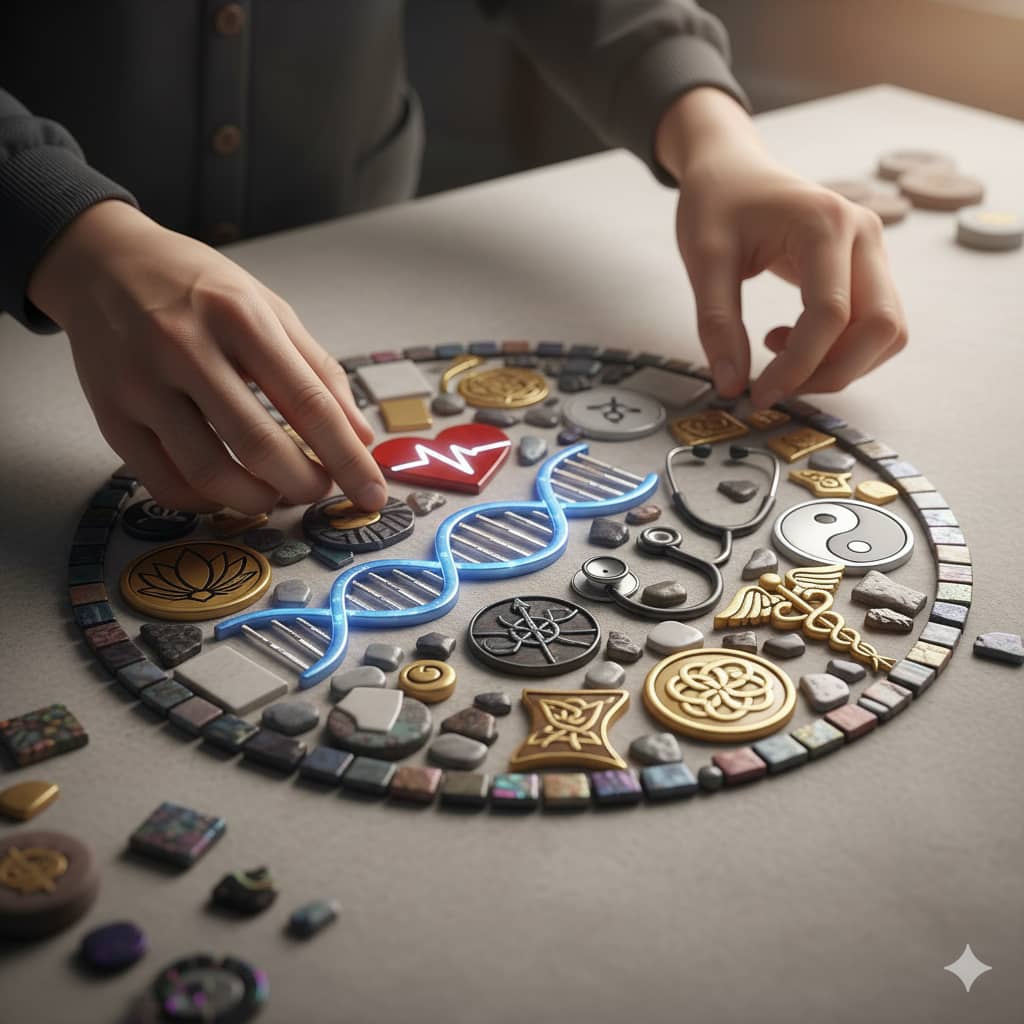I was a collection of well-managed symptoms, yet I did not feel well. My journey into integrative medicine was not a rejection of science, but a quest for a more complete map to health, one that included the uncharted territories of mind, spirit, and lifestyle. For years, I was a model patient in a fragmented system. I had a cardiologist for my blood pressure, a gastroenterologist for my intermittent stomach issues, and a therapist for my low-grade but persistent anxiety. Each specialist was brilliant in their own domain, expertly tweaking medications and offering targeted advice. My charts were impeccable, my numbers were stable, and according to every lab result, I was the picture of health. Yet, I felt fractured. I was tired, my digestion was a constant negotiation, and a general sense of unease was my emotional baseline. I was a collection of successfully managed problems, but I had lost the sense of being a whole person. The turning point came during a routine physical, when I mentioned my fatigue to my primary care physician. He glanced at my bloodwork, declared everything “within normal limits,” and suggested I was just stressed. It was not a wrong answer, but it was an incomplete one. It was the moment I realized I needed a different kind of map, one that included the canyons of my stress, the topography of my diet, and the climate of my mind. This was the beginning of my exploration into integrative medicine.
Integrative medicine, I discovered, is not merely the addition of alternative therapies to conventional care. It is a fundamental philosophy that places the whole person at the center of the healing process. The first and most profound shift was the initial consultation. It lasted nearly ninety minutes. The practitioner was a medical doctor, but she began not with my symptoms, but with my story. She asked about my childhood, my work stress, my sleep patterns, my relationships, and my deepest values. She wanted to know what I ate for breakfast, how I moved my body, and what brought me joy. She was assembling a biographical map of my health, understanding that the stomach ache, the anxiety, and the high blood pressure were not isolated islands, but part of the same continent. This comprehensive intake was not a dismissal of my previous diagnoses; it was an effort to understand the context in which they had arisen. She was looking for the root system of the weeds, not just trimming the leaves.
With this holistic map in hand, we developed a collaborative plan that wove together the best of both worlds. This was the second core principle: a therapeutic partnership. I was no longer a passive recipient of prescriptions; I was an active co-architect of my own well-being. The plan was multifaceted. My conventional medications were not discarded; they were respected as vital tools. Alongside them, we introduced evidence-based complementary strategies. For my anxiety and digestion, we explored mindfulness-based stress reduction and diaphragmatic breathing, techniques with robust scientific backing for calming the nervous system. We scrutinized my diet, not with a goal of weight loss, but of inflammation reduction, adding anti-inflammatory foods and identifying triggers that exacerbated my gastrointestinal discomfort. We discussed the role of movement not as a punitive calorie-burn, but as a essential nutrient for my mood and metabolic health. It was a personalized, layered approach that addressed my conditions from multiple angles simultaneously.

The ultimate goal of this integrative model is not just the absence of disease, but the active cultivation of vitality and resilience. This is the concept of “salutogenesis,” a focus on the origins of health rather than the origins of disease. My practitioner spoke of building a “health reserve,” a buffer that would allow my body and mind to withstand stress without breaking down. This involved exploring the deeper dimensions of my life that contributed to my sense of unease. We discussed my purpose and my sense of connection, recognizing that a lack of meaning can be as toxic as a poor diet. This was not fluff; it was a rigorous inquiry into the environmental and psychological factors that were draining my energy. The integrative approach empowered me with a sense of agency I had never felt before. I was not just taking a pill to lower my blood pressure; I was learning to breathe, to eat, and to live in a way that naturally supported a healthier cardiovascular system.
My journey with integrative medicine did not magically erase all my health challenges. What it did was far more valuable. It gave me the framework and the tools to understand them, to engage with them, and to see myself as a complex, interconnected system. The fatigue, the anxiety, and the digestive issues are no longer random afflictions to be suppressed. They are messengers, providing feedback on how well I am living in alignment with my own well-being. I still see my specialists, but now I do so as an informed partner, bringing the insights from my whole-person map to those focused conversations. Integrative medicine taught me that true healing is not a destination you arrive at, but a continuous, active process of tuning the instrument of the self, body, mind, and spirit, to play the music of a vibrant life.
References:
Andrew Weil Center for Integrative Medicine. (2024, April 3). What is integrative medicine? https://awcim.arizona.edu/about/what-integrative-medicine
East Tennessee State University. (2022, June 19). Integrative medicine. https://www.etsu.edu/cahs/htm/integrative-medicine.php
National Center for Complementary and Integrative Health. (2019, November 24). Traditional, complementary, and integrative medicine. https://www.who.int/health-topics/traditional-complementary-and-integrative-medicine
American Board of Physician Specialties. (2024, September 24). Integrative medicine defined. https://abpsus.org/integrative-medicine-defined/
ScienceDirect. (n.d.). Integrative medicine – an overview. https://www.sciencedirect.com/topics/medicine-and-dentistry/integrative-medicine

